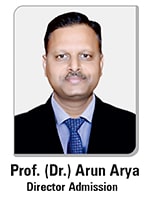

The department of Electronics and Communication Engineering received C2S approval for the EDA tools access under C2S Program, MEITY Government of India.

The following academics licenses of EDA tools have been provided for research and development in the field of VLSI, Semiconductor and Embedded Systems:
Synopsys, Cadence, Siemens, Ansys, Keysight, and Silvaco
The program is supported by Ministry of Electronics and Information Technology and ChipIn centre at CDAC. This initiative enables the students and researchers to access the world-class design tools, fostering innovation in semiconductor, VLSI and Embedded systems with the streamline with India semiconductor mission.
Overarching Vision: To catalyze a vibrant ecosystem for electronics system design and manufacturing in India by connecting academia, research, and industry to transform innovative ideas into commercial products and successful startups.
Core Mission: The C2S program is a comprehensive initiative designed to nurture India's electronics value chain. It achieves this by developing specialized talent in VLSI and Embedded System Design, fostering the creation of intellectual property (IP), and guiding the development of application-oriented hardware solutions through to deployment, all while leveraging and strengthening domestic Start-ups and MSMEs.
The program's objectives are structured around four interconnected pillars:
1. Specialized Human Capital Development:
2. Intellectual Property (IP) Creation and Curation:
3. Productization and Deployment:
4. Industry-Academia Synergy and Commercialization:
Activities under C2S Program at Arya College of Engineering and Information Technology Program Running:
Six-Month Advanced Certification Program Silicon to Systems: Advanced VLSI, Mixed-Signal & FPGA Design
with Three Different Certification Modules:
A. Hands-On FPGA Development: Tools, Techniques & Real World Applications
Tools: Xilinx ISE/Vivado
Focus: Real-world applications, prototyping, and verification techniques.
B. Advanced Analog & Mixed-Signal Design
Tools: Cadence EDA
Focus: Circuit simulation, layout design, and signal integrity analysis.
C. Advanced VLSI TCAD Simulation & Semiconductor Modeling
Tools: Synopsys TCAD, Silvaco EDA
Focus: Device modeling, process simulation, and semiconductor physics.
Course Outcomes:
Registration Fee: No Fee
Venue: Department of Electronics & Communication Engineering, Arya College of Engineering and Information Technology, SP-42, RIICO Industrial Area, Kukas, Jaipur, Rajasthan- 302028
Last date to register: 10 August 2025
Joining Link: https://forms.gle/aRUzakzjDF1v2Emy9
For any further information contact:
Institute C2S Coordinators:
Chief Investigator (CI)
Dr. Aditya Kumar Singh Pundir
Co-Chief Investigator (CI)
Dr. Rahul Srivastava









